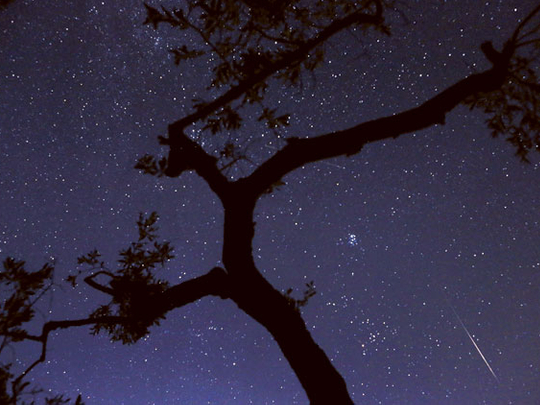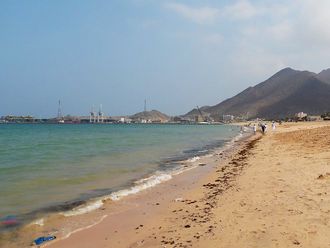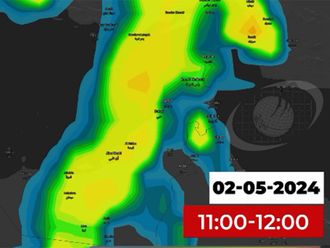
Dubai: You don’t have to be a professional stargazer to appreciate next week’s astronomical event.
A stunning celestial phenomenon will take place across the desert night sky and will leave fans delighted as the Perseid Meteor Shower happens on Sunday August 12 and Monday August 13.
Hassan Al Hariri, chief executive officer of Dubai Astronomy Group, told Gulf News that the meteor shower can produce anything between 100 to 150 meteors an hour, which will peak on the night of August 12 from 2am-4am.
“Meteor showers are like ‘dirty snowballs’, where light materials from comets are pushed out of the solar system and pulled in by the sun. It then starts to evaporate and creates a trail of dust,” said Hariri.
“The comet leaves behind a lot of garbage, such as dust and particles, and these elements are left in space that intercepts with the earth’s orbit and burns in the upper atmosphere. Small grains of dust particles and pebbles are then left behind,” he explained.
According to NASA meteor expert Bill Cooke, the Perseids are perhaps the most popular meteor shower of the year.
"This year the moon will be near new moon, it will be a crescent, which means it will set before the Perseid show gets underway after midnight," Cooke told Space.com.
"The moon is very favorable for the Perseids this year, and that'll make the Perseids probably the best shower of 2018 for people who want to go out and view it. The Perseids are rich in fireballs, so the show should be even better.”
Where to watch the meteor shower
The Dubai Astronomy Group is organising a Perseid Meteor Shower party from 10pm - 4am in Al Qudra desert on August 12-13. Tickets cost Dh150 for adults and Dh70 for children below 13 years.
The event will also provide visitors an opportunity to look through telescopes at other celestial objects, including Saturn, Venus and Jupiter.
Skywatchers are advised to pack enough water and have a first aid kit on hand, and should always remain in the group and not wander off alone in the desert.












